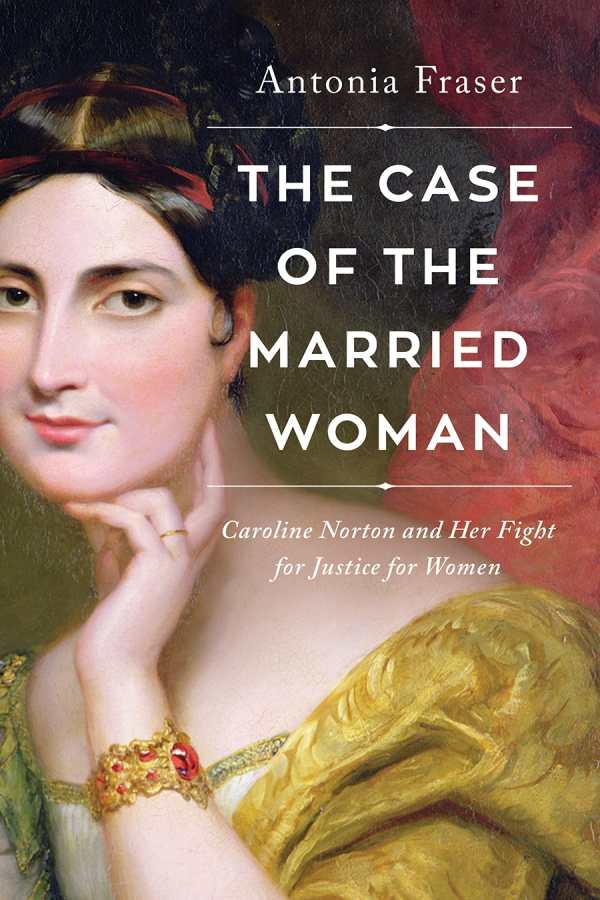The Case of the Married Woman
Caroline Norton and Her Fight for Women’s Justice
Antonia Fraser’s captivating biography of Caroline Norton follows her fight against inequality, which led to nineteenth-century legal reforms.
Born in 1808, Norton was the granddaughter of author and politician Richard Brinsley Sheridan. Bright and beautiful, she and her sisters were described as “bewitching” and “innocently wicked.” Following her marriage, Norton hosted a salon at her London home.
Norton’s husband, George, was a member of Parliament who encouraged his wife to use her looks, wit, and intelligence to advance his career. However, he was soon angered by her objections to his abusive behavior, as well as by her close friendship with Prime Minister Lord Melbourne. Norton sued Melbourne for adultery, seeking considerable monetary compensation.
George Norton’s case dragged his wife into a hellish imbroglio. Like all British women of the time, she had minimal legal rights. Her identity was reduced to the mere label of an adulteress, and her personal life became public fodder. Though her husband’s suit was unsuccessful, he maintained custody of their children, controlled her finances, denied her a divorce, and appropriated her reputable published works.
With engrossing detail, The Case of the Married Woman recounts actual scandals, romances, tragedies, and triumphs. Few fictional heroines could rival Caroline Norton’s shrewd defiance: she used her charm and writing talent to lobby for British women in matters of divorce, property, and child custody. Her forthright nature was tested by the slowness of social reform, but she learned to accept gradual progress, noting “We are all ants moving our grains of sand [and] by little and little the roadway will be seen.” Indeed, her work led to the passage of England’s 1839 Infant Custody Act, empowering fellow mothers.
A historical delight, The Case of the Married Woman is the biography of a tenacious woman who refused to accept injustice, indifference, and anonymity.
Reviewed by
Meg Nola
Disclosure: This article is not an endorsement, but a review. The publisher of this book provided free copies of the book to have their book reviewed by a professional reviewer. No fee was paid by the publisher for this review. Foreword Reviews only recommends books that we love. Foreword Magazine, Inc. is disclosing this in accordance with the Federal Trade Commission’s 16 CFR, Part 255.

